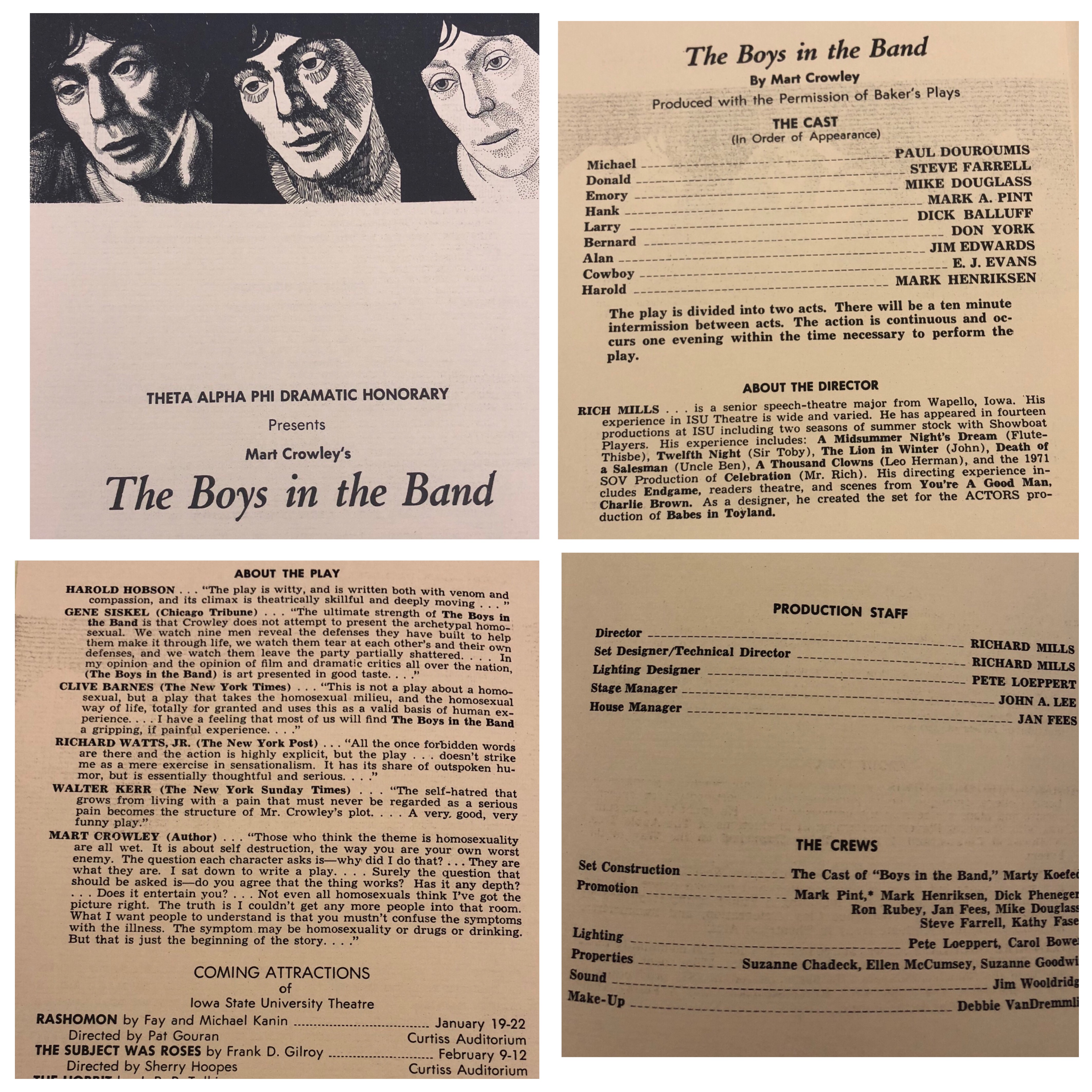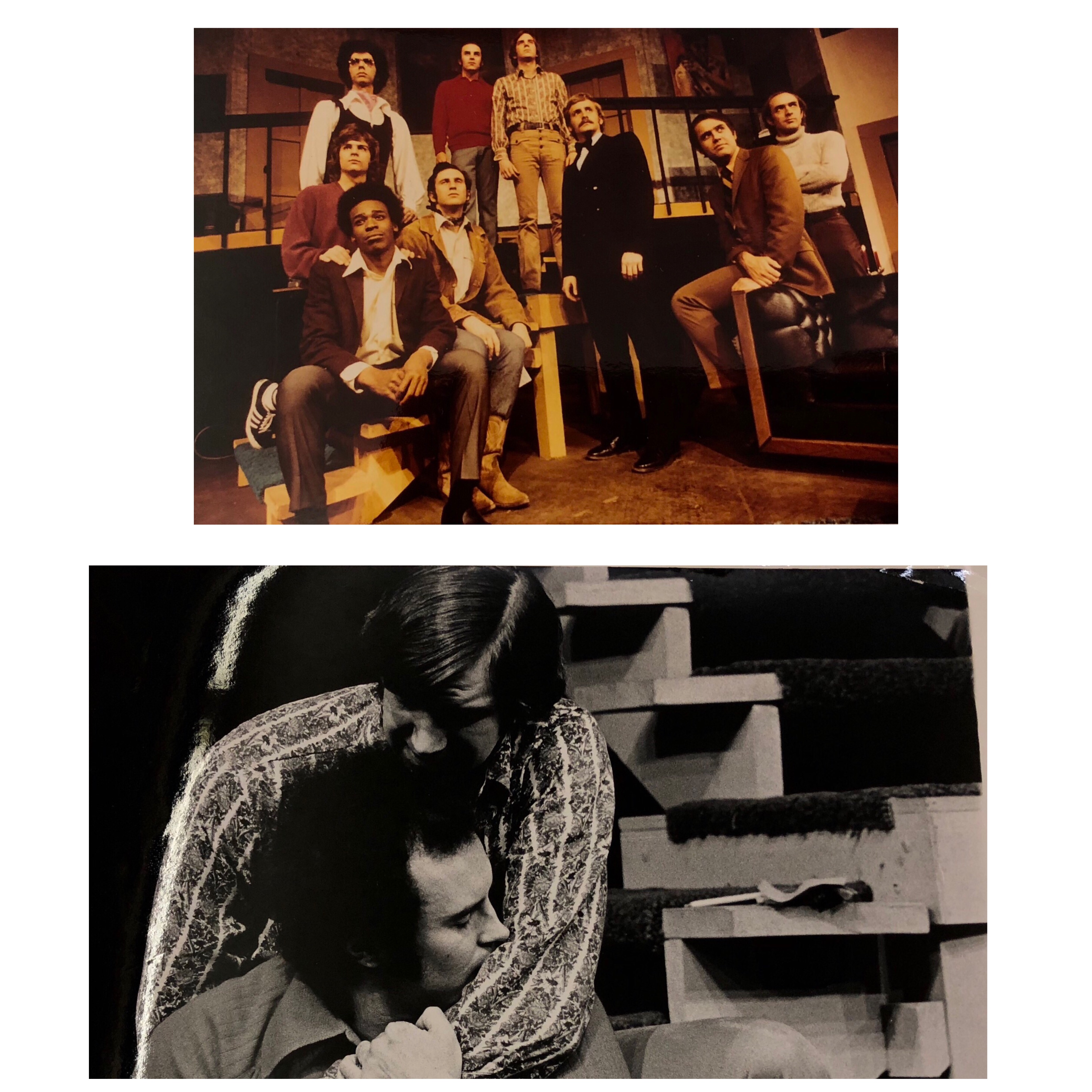LGBT+ History Month: Activist Archivists / Archivistas Activistas
Luis González-Díaz
The LGBT+ community since its beginning, has certainly faced its struggles in terms of finding visibility in society. A lot of the history from the community has been erased due to the historical oppression of its members. Nonetheless, some of the history is preserved in archives around the world. The word archivist according to the Oxford English Dictionary means “a person who maintains and is in charge of archives” (“Archivist”), but it is so much more complex than that. An archivist is in a unique position to correct the wrongdoings that society has done in the past. An activist according to the Oxford English Dictionary is defined as “a person who campaigns to bring about political or social change” (“Activist”), and exactly this, is what an archivist can be.
“Archivist as Activists” is a term quoted from “Archivist as Activist: Lessons from Three Queer Community Archives in California”, written by Diana Wakimoto, Christine Bruce, and Helen Patridge. In the article, they talk about how by being an activist, archivists are able to preserve the history of marginalized communities, and be able to ensure representation in their collections.
La comunidad LGBT+ desde sus comienzos, ha sin duda enfrentado sus luchas en el sentido de encontrar visibilidad en la sociedad. Mucha de la historia de la comunidad ha sido borrada, debido a la opresión histórica de sus miembros. No obstante, alguna de la historia es preservada en archivos alrededor del mundo. La palabra archivista se define como “una persona que mantiene y preserva los archivos” (“Archivist”); pero es mucho más compleja de lo que aparenta. Un archivista está en una posición única en donde existe la posibilidad de corregir las malas acciones del pasado. Un activista es “una persona que promueve el cambio político y social” (“Activist”); y exactamente esto, es lo que un archivista puede ser.
Archivista como Activista es un término citado de “Archivista como Activista: Lecciones de Tres Archivos Queer de la Comunidad en California”; escrito por Diana Wakimoto, Christine Bruce, and Helen Patridge. En el artículo, hablan de cómo ser un activista, puede ayudar a los archivistas en el proceso de la preservación de materiales de comunidades marginalizadas. Esto puede ayudar a garantizar la representación equitativa en los archivos.


Furthermore, people constantly ask why collecting LGBT+ material is so important. Well, it is very important to collect these materials because there is a need for them. LGBT+ people have and always been a part of history, and leaving them out from the discourse would simply be wrong. By being an activist for the community, archivists can ensure that everybody is present when preserving and maintaining history.
Here at SCUA, we are collecting and preserving Iowa State University LGBT+ history by being activists and making sure that the community is being represented within our archives. One of our earliest accounts of LGBT+ student life dates back to 1971, regarding a student organization called the Gay Liberation Front [RS 22/4/0/1, Box 1]. The Gay Liberation Front wrote a letter to the ISU Daily, where they expressed their feelings toward the discrimination of gay people in the 70’s. They specifically said “We, members of Iowa State University’s gay community, feel that we can no longer tolerate the overt and covert discrimination against homosexuals on this campus”.
The outrage nonetheless, was caused by a theater play that Iowa State brought to campus titled “Boys in the Band”; a famously known LGBT+ related play. The Gay Liberation Front then said that “By allowing the presentation of the play The Boys in the Band, Iowa State University has, in effect, said that its students are prepared to tackle the question of homosexuality”.
Además, muchas personas se cuestionan por qué la preservación de materiales LGBT+ importa. Pues, es muy importante porque hay una necesidad de recolectar estos materiales. La comunidad LGBT+ siempre ha sido parte de la historia y dejarlos fuera del discurso, sería un acto atroz. Siendo un activista para la comunidad, los archivistas pueden asegurar que todo el mundo está presente en la preservación de la historia.
Aquí en “SCUA”, estamos colectando y preservando la historia de la comunidad LGBT+ en Iowa State University. Lo estamos logrando siendo activistas y asegurándonos que haya representación en nuestros archivos. Uno de nuestros archivos más tempranos, es de 1971 y es relevante a un grupo llamado el “Gay Liberation Front” [RS 22/4/0/1, Caja 1]. El “Gay Liberation Front” escribió una carta al periódico local, el “ISU Daily”, donde expresaron sus sentimientos sobre la discriminación de personas de la comunidad LGBT+ en los años 70. Específicamente dijeron “Nosotros, los miembros de la comunidad gay de la Universidad, sentimos que no podemos tolerar el discrimen rampante contra los homosexuales en esta Universidad”.
La furia, no obstante, fue causada por una obra teatral que Iowa State University trajo a la universidad, titulada “Boys in the Band”. Esta obra es notablemente LGBT+ y por esto el “Gay Liberation Front” expresó que “Si dejan presentar la obra, están diciendo que la Universidad y por ende su estudiantado están preparados para hablar sobre temas LGBT+”.


![]()
About this entry
Original Post: LGBT+ History Month: “Activist Archivists / Archivistas Activistas” by Research Assistant Luis Gonzalez-Diaz
Publication Date: October 1, 2018
References
- Iowa State University Department of Speech Communication, Theatrical Production records, RS 13/23/3, Iowa State University Library Special Collections and University Library.
- Iowa State University. Student Organizations – Political and Social Action Organizations records, RS 22/4, Iowa State University Library Special Collections and University Archives.
- Lexico.com. 2019 (formerly the Oxford English Dictionary online).
- Wakimoto, Diana; Bruce, Christine; and Partridge, Helen. “Archivist as activist: lessons from three queer community archives in California.” Archival Science, 2013, Vol.13 (4), pp.293-316.

